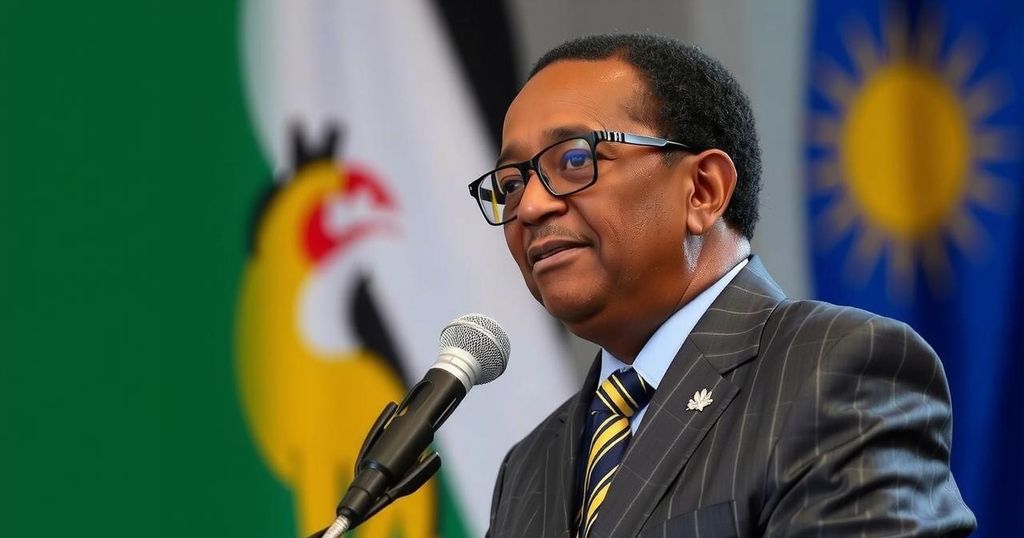Mokgweetsi Masisi, the President of Botswana, has conceded defeat in the elections, with the BDP losing its long-standing parliamentary majority to the opposition coalition, UDC. Preliminary results indicate a considerable success for the UDC, enabling its leader, Duma Boko, to potentially claim the presidency. This election marks the end of a six-decade era of BDP governance, amidst Botswana’s ongoing economic challenges related to its diamond industry.
Mokgweetsi Masisi, the President of Botswana, has acknowledged his defeat in the recent elections, which have resulted in his party, the Botswana Democratic Party (BDP), losing its parliamentary majority after nearly sixty years of governance. Preliminary results indicated a significant loss for the BDP, as reported by both the Mmegi newspaper and state radio, based on tallies from several constituencies. The opposition coalition, known as the Umbrella for Democratic Change (UDC), appears to have secured the lead, positioning its leader, Duma Boko, to potentially assume the presidency. As of now, Mr. Boko has not publicly addressed the outcome. In a press conference addressing the electoral results, President Masisi stated, “Although I wanted to stay on as your president, I respect the will of the people and I congratulate the president-elect. I will step aside and I will support the new administration.” Political analysts had anticipated a competitive election; however, the BDP was initially expected to maintain its dominance. Having governed Botswana since its independence from British colonial rule in 1966, this change marks a significant transition in the nation’s political landscape. According to Mmegi’s reporting, initial results from 36 of the 61 constituencies revealed that opposition parties had captured more than half of the parliamentary seats necessary to elect the new president. In comparison, the BDP managed to secure only one seat, while the UDC succeeded in winning 25 seats. A total of 31 constituencies is required to achieve a majority in this election. Botswana is recognized for its political stability and economic prosperity, primarily attributed to its diamond wealth and a manageable population that benefits from free healthcare and education. Nevertheless, recent downturns in the diamond market have hindered revenue streams, prompting the country to address the pressing need for economic diversification.
The recent electoral results in Botswana signal a pivotal moment in the country’s political history, as the BDP ends its longstanding rule that began after independence in 1966. Historically characterized by political stability and economic prosperity, Botswana’s governance has been closely linked to its diamond industry, which is the most significant contributor to its economy. The recognition of a competitive electoral climate, with analysts predicting a potential shift in power, underscores the importance of this election amid emerging economic challenges including declining diamond revenues and the necessity for diversification strategies in a post-BDP governance framework.
In summary, the electoral defeat of Mokgweetsi Masisi and the BDP represents a monumental shift in Botswana’s political landscape, concluding nearly sixty years of party rule. The emergence of the UDC, led by Duma Boko, marks a new chapter in Botswana’s governance, one which may address the pressing economic challenges that the nation faces. The will of the electorate has paved the way for potential change, reflecting both a desire for new leadership and a reassessment of economic policies.
Original Source: www.theguardian.com






